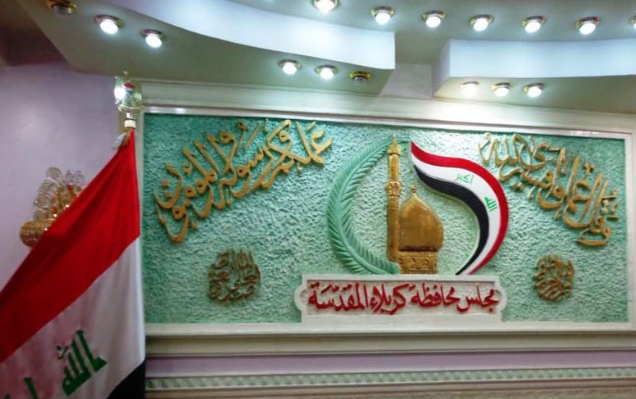The Holy Karbala Provincial Council dedicated its regular session, held on Tuesday, to discussing all matters related to the preparatory plan for the upcoming Arbaeen pilgrimage, expected to take place in the middle of next month. The session emphasized the importance of mobilizing all governmental and civil efforts to ensure the success of the event.
Legal expert and Deputy Chairman of the Council, Mr. Mahfouz Al-Tamimi, stated:
“On Tuesday, July 15th, the Council held its 24th regular session, during which the primary topic was the readiness of the local government in Holy Karbala to receive pilgrims for the Arbaeen pilgrimage of Imam al-Husayn (peace be upon him).”
The discussion focused on key issues such as:
-
Coordination between local government departments, federal ministries, and directorates
-
Collaboration with the holy shrines, Hussaini processions (mawakeb), and volunteer organizations
-
Anticipating a significant increase in pilgrims this year, especially with growing interest from neighboring Islamic countries
Tamimi added:
“Just yesterday, a key meeting was held in Iran, attended by the Governor of Karbala, Engineer Nassif Jassem al-Khattabi, along with the Ministers of Interior of Iraq, Iran, and Pakistan, to finalize security and organizational arrangements for the pilgrimage.”
He also revealed that several countries have submitted official requests for designated zones for their pilgrims — including from the Gulf states and Turkey — which is an indicator of the expected unprecedented influx of visitors not only to Karbala but also to the central and southern provinces.
Tamimi noted that:
“The scale of this event poses a significant challenge to both the federal and local governments. Hence, it demands extensive cooperation and mobilization of resources, particularly from critical ministries such as electricity, water resources, health, transportation, and housing.”
The council reviewed lessons learned from previous pilgrimages — particularly the 2023 Arbaeen visit — citing electricity as a major concern. Although efforts by the Ministry of Electricity are underway, the province is currently experiencing power shortages, receiving only around 1,000 megawatts — a supply that does not meet rising demand. Meanwhile, ongoing electricity projects have resulted in service interruptions in several areas.
Water was another central topic. The council is pressing the Ministry of Water Resources to ensure sufficient reserves for operating water desalination units near rivers. Some units had gone offline during the Muharram 10th commemoration.
Transport and pilgrim movement logistics were also reviewed, especially with the Arbaeen pilgrimage expected to coincide with extreme summer heat in mid-August. The council discussed the need to supply processions with power sources and ice.
The council has formally approached the governor and relevant ministries, expanding coordination efforts with the holy shrines, procession leaders, and volunteers. Security coordination was also on the table — including the role of reinforcement forces coming to Karbala, and addressing any misconduct or violations through better regulation in collaboration with security and military leadership.
Other key issues discussed:
-
Water supply, health services, sanitation, and waste management
-
New service projects entering operation this year, including road infrastructure and two major water projects currently in trial phase
-
Transport stations and parking lots for pilgrims and mawakeb vehicles, including access and offloading zones outside the city center
The council also discussed the issue of pilgrims entering Karbala with private vehicles, or foreign governments transporting pilgrims via buses — a matter still under federal-level discussion. The local government is seeking to regulate this process by allocating designated entry points on Karbala’s outskirts or at bordering regions with neighboring provinces or international border crossings.

